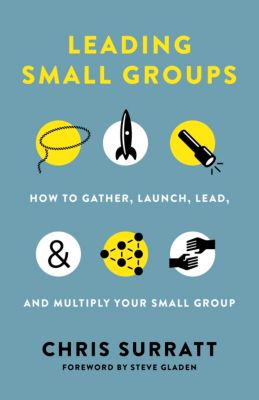
By Andrew Hudson
The days following 9/11 were passionate, patriotic days. I remember sitting in long lines at gas stations behind big trucks with giant American flags flying from their beds.
Families and neighborhoods united together for a common good. Sporting events and teams started implementing more focus on “The Star-Spangled Banner” or “God Bless America.” That passion was fueled by a sense of honor or duty.
But many of those days were also scary. There was real fear of another attack or that our economy would fail. Many of our friends enlisted to fight a long battle. But churches had full services, and prayer was frequent. Emails shared messages of hope and encouragement. Ribbons were tied around trees to show support. We called people we loved to check in on them. We banded together, and we cared for each other.
Unfortunately, it didn’t last long. Soon, we all returned to our common way of life. We lost our sense of community and replaced a shared focus and sacrifice with ideas of selfishness and self-centeredness. Not intentionally—it just happened. We got busy with all of our errands and schedules.
We’re now in similarly uncertain times. We’ve been told that if we are to make a difference with this virus, we need to stay away from each other, often in isolation from those we love the most.
I’ve seen jokes about how introverts have been longing for the days of isolation and extroverts (myself included), are craving some sort of interaction with people. Humor aside, we all need interaction. We’re all coping to various degrees in this isolation.
We’ve been able to use technology to unite churches across the country; we have set up video calls with extended family members or friends so we can share a meal together; we’ve called our friends to check in and then talked for hours. We’re craving community. We’re made for it.
Even before the pandemic, less than half (47%) of Protestant churchgoer said they “intentionally spend time with other believers in order to help them grow in their faith.” Click To TweetBut even before the pandemic changed so much about the way we approach community, less than half (47%) of Protestant churchgoers told Lifeway Research that they “intentionally spend time with other believers in order to help them grow in their faith.”
More than ever, we need to center our discipleship communities around the fellowship spoken of in Acts 2. They devoted themselves to the apostles’ teaching, to the fellowship, to the breaking of bread, and to prayer. If our goal is to help usher people to the throne of Jesus, this is a clear guide on how we should treat our communities.
Be intentional
The first step in building a community is to be intentional about gathering together. During the coronavirus pandemic of 2020, I’ve found it incredibly interesting that we’ve found ways to connect and reconnect with people that previously, in many cases, we hadn’t tried this hard to reach.
Churches have moved online, and numbers of them have seen increases in attendance. Small groups have moved to platforms like Zoom or Google Hangouts and are continuing to meet even though members are isolated in their own homes.
Whether you use high-tech solutions or low-tech phone calls or mailed letters, we’re all craving some intentional communication. — @AndrewHudson Click To TweetWhether you use high-tech solutions or low-tech phone calls or a mailed letter, we’re all craving some intentional communication. It should not be surprising that the Latin root word for community and communication is the same. Reach out. Be intentional.
Get through the awkward stage.
I used to volunteer with a para-church ministry and was asked to lead and disciple the high school freshman boys. This group of unwieldy, energetic boys that somehow knew no boundaries on food consumption, joke-telling, or wrestling had me both laughing hysterically and also considering quitting almost every week.
We needed to push through the rough spots of getting to know each other, and I needed to earn the right to be with them through some hard times as seniors and beyond. The night they all graduated from high school, we gathered together and I prayed over them. That was one of the most heartfelt nights I’ve ever experienced.
When you push through the initial awkwardness (as we did several years before), you can open up together and get to the good stuff. Play the get-to-know-you games for months if you need to—the beginning stages should feel light, creating the foundation for deep conversations to come.
Be consistent
It’s far better for your community to know that you will be there every week than for you to have one amazing group on an irregular basis. A weekly meeting that has a set schedule and rhythm will build more community than sporadically forwarding emails to the group or having an incredible worship night every so often.
It’s far better for your community to know that you will be there every week than for you to have one amazing group on an irregular basis. — @AndrewHudson Click To TweetWe’re creatures of habit and love routine, so knowing what to expect is crucial. Following a similar pattern each week is also a good idea. Starting at the same time, adhering to a loose agenda, and wrapping up approximately at the same time will help build consistency in your group.
Similarly, because your group is a collective of individuals, we need to be consistent in our availability and response to individual group members, as well. Think of the group as a whole and focus on the individuals.
Study Scripture
Each time you meet together, studying Scripture should be at the forefront. Returning to Acts 2, the followers devoted themselves to the teaching. Devoted. They were filled with awe at the signs and wonders, validating the Scriptures.
We can do the same. We can analyze Scripture, consult commentaries, and lead a discussion around how to implement the learning into our everyday lives, because that’s when we need it most—every single day.
Your group is not an opportunity to simply open your Bible and wing it. — @AndrewHudson Click To TweetYour group is not an opportunity to simply open your Bible and wing it. Using a Bible study curriculum is a great option to ensure that what you’re studying is trustworthy and relatable to everyday life.
Share Burdens
Similar to how the early church shared possessions to give to anyone in need, we can also share our burdens with the group, allowing them to come alongside us and walk with us through the trials.
The early church believers were able to meet the needs because they knew the needs. We too need to inform our group, with honesty and vulnerability, of our prayer requests or physical, tangible needs.
Pray
My community ends our time together with prayer each week. We pray over the requests, we lift each other up in praise, and we thank God for each other. We also have a group message board that lists our prayer requests so that we can pray over the list throughout the week.
If you want to get close to someone, start praying for them by name every day. — @AndrewHudson Click To TweetIf you want to get close to someone, start praying for them by name every day. It’s amazing how God will work in your life to consistently put them on your mind and then reach out to them to follow up on their requests.
Break Bread
Each week (pre-COVID), we had a very small setup of snacks. Depending on who brings them, we have a pretty wide variety of healthy to junk food. This could be something as simple as a veggie tray or bag of chips.
This isn’t a time to show off your culinary prowess. Snacks allow for people coming straight from work (or others to have something to nibble on) to settle their hunger and allow for us to study. It’s a small touch of hospitality, welcoming the group into the home.
We tend to have people trickle in over about 15 minutes in the beginning, and the snack allows for people to mingle and ask how weeks have been without much structure.
The Table
Every few months (again, pre-COVID), we took a night off and had a meal together. This allows everyone to contribute something to the meal, and we all sit down and eat together. This makes us all slow down for just a moment, relax, and be with each other.
These nights have become one of my favorite parts of our community. Often, they are hours long, and we greatly enjoy each other’s company. In the warm spring and summer months, we find ourselves circled around a picnic in the park or around a fire pit in the evenings. Be with your people.
The Festivals
We enjoy gathering together around holidays such as July 4th, Thanksgiving, or some made-up holiday that allows us to have a feast. We bring loads of food, games, and music to celebrate together. We bring our kids and invite many families from the neighborhood. We have blow-up mountains and waterslides and “best pie” contests and cakewalks.
Scavenger hunts, walkie-talkies, mock-Olympic games, treasure maps, talent shows, and sing-alongs are great ways to spend time together—even for the adults! A little bit of competition goes a long way with our group—and a trophy that gets passed from winner to winner is a huge hit. Just remember to keep it lighthearted and welcoming to the new friends brought into the group.
We love being all together.
This forced season of rest has caused us to slow down and reflect upon what truly matters. Friends matter. Family matters. People matter. Your community matters. Click To TweetMay we not lose sight of the intentionality the coronavirus forced. While we hunkered into isolation in our homes, the gospel spread through technology, and we connected with those around us. I have received and sent more messages to friends and family.
This forced season of rest has caused us to slow down and reflect upon what truly matters. Friends matter. Family matters. People matter. Your community matters. Let’s take (safe) steps now to begin to reinvigorate our discipleship communities.
Hear more from Andrew on “Discipleology,” the podcast where he discusses all things discipleship with his co-hosts Mary Wiley and Chris Surratt, including topics as community, happiness, purpose, rest, and more!

Andrew Hudson
Andrew is brand manager for Bible Studies for Life, a Bible study curriculum for adults, students, and kids that’s purpose-built around the research-backed growth principles found in the Discipleship Pathway.








